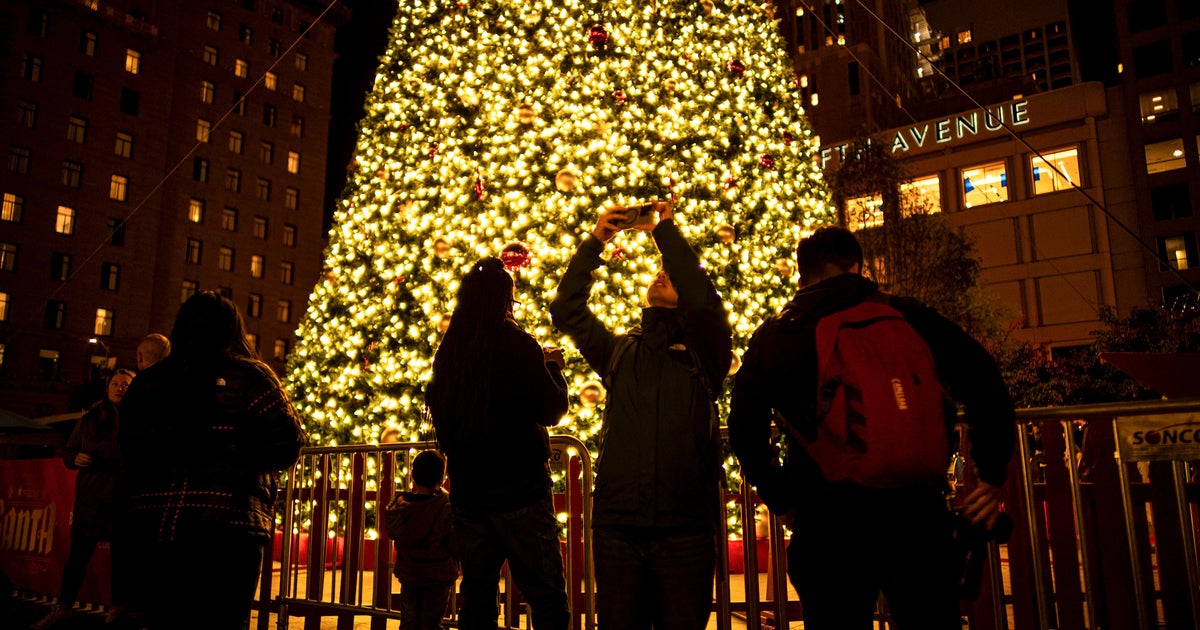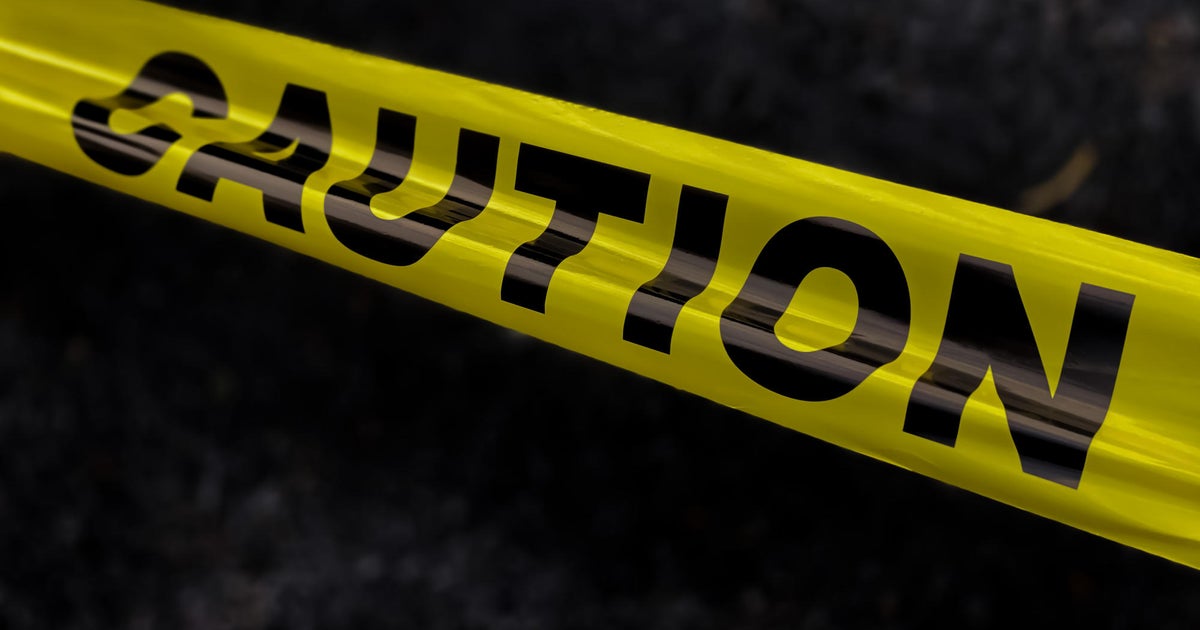Officials carry out controlled burn at chemical plant flooded by Harvey
HOUSTON -- Authorities finished a controlled burn Sunday of highly unstable compounds at a Houston-area chemical plant that flooded because of Harvey. Utility crews went door-to-door to shut off power and warn those still at homes in the western reaches of the metro area that more flooding was possible.
The Harris County Fire Marshal's Office said in a statement Sunday evening that all nine trailers filled with organic peroxide at the Arkema plant in Crosby, Texas, have burned. Earlier Sunday, authorities said that a controlled burn had started on the six trailers that had not caught fire in previous days.
Three trailers had already caught fire at the plant after backup generators were consumed by Harvey's floodwaters, which knocked out the refrigeration necessary to keep the chemicals from degrading and catching fire.
Officials said the "proactive measures" to ignite the six remaining trailers wouldn't pose any additional risk to the community.
Early Monday, the Crosby Fire Department and other authorities in the city lifted the evacuation that had been in effect for a 1.5 mile-radius of the plant.
The fire marshal's office says state, federal and local agencies will continue monitoring the air, adding that all data to date indicates no impact to air quality.
Meanshile, some people took a break from their cleanup efforts in the sweltering heat Sunday to worship on a declared National Day of Prayer, while others worried about looters and scavengers in storm-ravaged neighborhoods.
Houston officials stressed that the recovery was beginning despite the renewed flood threat, but an official in the town of Liberty, northeast of the city, said some people in outlying areas there had yet to even return to their homes.
"This will last for some people for months, if not years," said Liberty Fire Chief Brian Hurst.
Residents of nearby Beaumont remained without potable water.
At least 4,700 Houston dwellings were under new, mandatory evacuation orders, though about 300 people were thought to be refusing to leave. The Army Corps of Engineers said the water release is necessary to relieve the Addicks and Barker reservoirs from several feet of rain from Harvey and to create space in case of more.
Mayor Sylvester Turner said anyone staying in already-waterlogged homes was endangering themselves and first responders. Harvey hit Texas on Aug. 25 as a Category 4 hurricane, but brought the worst flooding to Houston and other communities as a tropical storm. It is blamed for at least 44 deaths.
Still, Turner insisted that much of the nation's fourth-largest city was hoping to get back on track by Tuesday.
"The city of Houston is open for business. Anyone who was planning on a conference or a convention or a sporting event or a concert coming to this city, you can still come," Turner said on CBS' "Face the Nation." ''We want you to still come. We can do multiple things at the same time."
Turner told CBS News' Margaret Brennan that the city's water system is safe and the electric grid "is pretty much sound."
"There are only about 12,000 people in the city of Houston without power," he said. "The airport system is up and running. The transit system is up and running. We've started picking up heavy debris."
But in the southwest Bellaire neighborhood, police received reports of scavengers picking through water-damaged possessions and urged those cleaning up to keep anything left outside to dry closer to their homes and separate from what was considered a total loss. In the suburb of Dickinson, one homeowner used orange spray paint on a sheet of dirty plywood to warn: "Looters Will B Shot."
Robert Lockey, a 48-year-old school district bus monitor, worked to clean up his flooded home in Spring, Texas, outside Houston, in the 94-degree heat. A pile of wooden doors lay in his yard next to ripped out drywall.
"They're sweating to death," Lockey said, looking at his neighbors and their similar piles of debris.
Added his roommate, Elizabeth Hallman: "This definitely is not fun."
Repairs continued on the water treatment plant in Beaumont, about 85 miles from Houston, which failed after the swollen Neches River inundated the main intake system and backup pumps halted. In the nearby town of Vidor, Pat Lawrence and her fiancé, Jim Frasier, hopped on a tractor, the only way they could make it to services at the Pine Forest Baptist Church.
"You can't hardly comprehend all the water that's around," Lawrence said. "My house is not flooded but getting out is flooded. I've been in my house since last Saturday, not left the place until today."
Floodwaters also have inundated at least five toxic waste Superfund sites near Houston and some may be damaged, though Environmental Protection Agency officials have yet to assess the full extent of what occurred.
Turner said Houston's drinking water wasn't affected by the storm but added on "Face the Nation": "We would hope that the EPA would be on the ground now to take a look at those Superfund sites, to make sure that contamination is contained and limited."
Near the town of Liberty, about 45 miles from Houston, dozens of people were still cut off by the swollen Trinity River. Maggie King and her two children greeted a Texas National Guard helicopter that landed at the local fire department with pallets of drinking water.
"It's so far from over," King said. "There's so much more that has to be repaired from here."
Sunday was declared a day of prayer in Texas by Abbott and across the nation by President Trump. He and the first lady attended services at St. John's, an Episcopal church in Washington, a day after visiting Harvey evacuees in Houston and Louisiana.
At St. Joseph Roman Catholic Church in the Gulf Coast city of Port Aransas, the clergy set out holy water and bug spray, and many anointed themselves with both.
"We will remember the destruction of this uninvited guest but we will never stop being a people of hospitality. The peace will return," the Rev. Kris Bauta told about 50 worshippers from the darkened sanctuary. The church, only four blocks from the Gulf, suffered only a damaged carpet from a leak in the roof, although the storm surge ended 3 feet from the building.
Mr. Trump has asked Congress for a $7.9 billion down payment toward Harvey relief and recovery efforts -- a request expected to be swiftly approved when lawmakers return to work Tuesday. Abbott called that a mere "down payment" and suggested the total cost of recovery could be as much as $180 billion.
Harvey brought five straight days of rain totaling close to 52 inches in one location, the heaviest tropical downpour ever recorded in the continental U.S.
Another storm, Hurricane Irma, was far out over the Atlantic. It could come near the eastern Caribbean Sea by early this week but no coastal watches or warnings were issued. Irma was a Category 2 storm moving west-southwest at nearly 14 mph.




